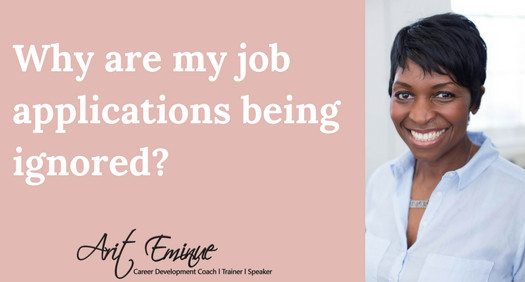
Why are my job applications being ignored?
I was asked this question at my last CV clinic. Most hiring managers do not ignore applications, but we do swiftly reject those that make common (lazy) mistakes. Here are just a few reasons you may be stumbling at the first hurdle.
You are spreading yourself about like margarine: by this I mean you are on a few recruitment websites and have a generic application that you are submitting to any job that pays okay and sounds all right. Your lack of interest is coming right back to you in the form of silence. Less is more. Invest the time in researching the job and company before you apply so you can submit a quality application tailored to the position on offer.
Your CV says you are looking for a different type of job to the one you have applied for: no comment.
There’s no cover letter: even if you are applying for a job via a generic email address, your email should say more than “here’s my application for such and such a role.” A cover note is a great way for you to show your personality and enthusiasm for the role.
Leaving fields blank on the application form: the less information you provide, the less a hiring manager knows about you. If you are unsure whether a question relates to you, contact the hiring manager for clarification. Leaving fields blank could also suggest you lack attention to detail.
You are underselling yourself: avoid cliches that tell us about your skills and achievements and instead give specific examples which illustrate the impact you have made in other organisations. A hiring manager is far more attracted to a statement such as: "I generated £7K per month in sales, which was 10% above baseline targets." than the cliched: "I have excellent sales skills." Watch my tutorial on ‘How to Write a CV' for tips on how to sell your achievements.
Your CV is poorly structured: most employers want to know what you have done not what you have studied. Lead with your work experience and then follow with your education. That is not to say education is not important – in some industries qualifications are compulsory – but at the end of the day, a person who has applied their knowledge in a working environment is always going to have the edge over someone who has not.
Ignoring application rules: there's always one who circumvents the rules by sending their application directly to the company or person they will be working for. Some hiring managers (like me) don't mind this. However, others may view the effort as an inability to follow directions. You also need to consider that the person you send it to, may not read it or forward it to the hiring manager.
They’re just not that into you: sounds harsh, but it’s a reality. Every cup has its saucer, and that company is not yours. There is a role out there with your name on it. Seek and ye shall find.
----------------------------------------------------------------------------------------------------------
About the author: Arit Eminue helps people pursue careers they enjoy. She is a multi-award winning entrepreneur and career development coach, speaker and trainer. She is the founder and director of DiVA a recruitment and training organisation specialising in creative, business and digital apprenticeships and is regularly called upon to deliver workshops and inspiring talks at Universities and conferences on topics such as entrepreneur and intrapreneurship, connecting to your career of purpose, and job search and interview techniques. To connect with Arit directly call 0203 189 1784.
Senior Application Specialist at British Transport Police. A Certified ITIL Practitioner.
6yVery good advise